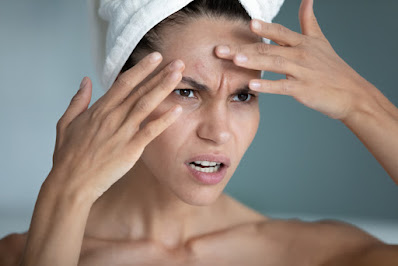The Impact of Stress on Skin Health and Effective Stress Management Techniques
In today's fast-paced world, stress has become an inevitable part of our lives. It affects us physically, mentally, and emotionally. One area where stress can have a significant impact is on our skin health. The connection between stress and skin conditions has been widely studied, highlighting the importance of effective stress management techniques in maintaining healthy skin. This article explores the impact of stress on skin health and provides valuable insights into effective stress management techniques.
Understanding the Link between Stress and Skin Health
Stress triggers a cascade of physiological responses in our bodies, including the release of stress hormones like cortisol. These hormones can disrupt the delicate balance of our skin, leading to various skin issues. Studies have shown that stress can exacerbate existing skin conditions such as acne, eczema, psoriasis, and rosacea. Additionally, it can also contribute to premature aging, dryness, and dullness of the skin.
Effects of Stress on Skin
a) Acne: Stress stimulates the production of sebum, an oily substance that clogs pores and leads to acne breakouts.
b) Eczema and Psoriasis: Stress weakens the skin's barrier function, making it more susceptible to flare-ups of these chronic inflammatory conditions.
c) Rosacea: Stress can trigger or worsen rosacea symptoms, causing redness, flushing, and visible blood vessels on the face.
d) Premature Aging: Chronic stress accelerates the aging process by promoting the breakdown of collagen and elastin, resulting in wrinkles, fine lines, and sagging skin.
e) Dryness and Dullness: Stress disrupts the skin's natural moisture balance, leading to dryness and a lackluster complexion.
Effective Stress Management Techniques for Healthy Skin
a) Practice Mindfulness and Meditation: Engaging in mindfulness-based activities like meditation, deep breathing exercises, and yoga can help reduce stress levels and promote overall well-being.
b) Regular Exercise: Physical activity releases endorphins, which are natural mood boosters. Regular exercise helps alleviate stress and improves blood circulation, benefiting the skin.
c) Get Adequate Sleep: Prioritize quality sleep as it allows the body to repair and regenerate. Lack of sleep can increase stress levels and negatively impact skin health.
d) Maintain a Healthy Diet: Consuming a balanced diet rich in fruits, vegetables, whole grains, and lean proteins provides essential nutrients for healthy skin. Avoiding excessive sugar, processed foods, and caffeine is also beneficial.
e) Establish a Skincare Routine: A consistent skincare routine tailored to your skin type can help manage stress-related skin issues. Cleanse, moisturize, and protect your skin daily with suitable products.
f) Seek Emotional Support: Talking to friends, family, or a mental health professional can provide emotional support and help manage stress effectively.
Additional Tips for Stress Management
a) Time Management: Prioritize tasks, delegate when possible, and create a schedule that allows for breaks and relaxation.
b) Engage in Hobbies: Pursuing activities you enjoy can divert your mind from stressors and promote relaxation.
c) Limit Screen Time: Excessive screen time can contribute to stress. Take regular breaks and engage in offline activities.
d) Practice Self-Care: Engage in activities that promote self-care, such as taking baths, reading, listening to music, or practicing hobbies.
Conclusion
Stress has a profound impact on skin health, contributing to various skin conditions and accelerating the aging process. Understanding the link between stress and skin is crucial for effective management. By incorporating stress management techniques into our daily lives, such as mindfulness, exercise, adequate sleep, a healthy diet, and a consistent skincare routine, we can mitigate the negative effects of stress on our skin and promote overall well-being. Prioritizing stress management is not only beneficial for our skin but also for our mental and physical health.
Like this article? Invite your friends to read :D
